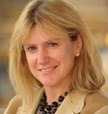- Learning
Why Senior Leaders Should Go Back to School
It’s never too late, and you are never too old, to go to business school
The demands on C-suite time are too great; the learning is too academic; and at 50 what more can I possibly learn? There are many excuses!
But in fact it’s never too late, and you are never too old, to go to business school and when board-level executives go to business school the results are spectacular.
Simon Hoenderop, CFO of Netherland’s based C4C Holdings, a participant in the Advanced Leadership Programme (ALP) at Cambridge Judge Business School, and Allison Wheeler-Héau Director of Open Programmes at Judge explain why there is always room to grow as a senior executive – however much you think you know.
There’s a lot going on beyond the FT
In a rapidly changing world what you think you know is almost certainly not enough. Executives may be well informed about their sector and pass the ‘No FT No Comment’ test on world affairs. But there’s a big difference between reading about the trends from one point of view and learning about them from experts in the field and people who have actually lived it. “They really open your mind,” says Simon Hoenderop.
A new perspective is always valuable
Senior leaders need to move beyond their established networks to gain a more diverse perspective on their businesses and a good APL offers the perfect opportunity for this. Typically an ALP at Judge will represent no less than 15 nationalities. “There were many different types of people… from different countries, backgrounds, and positions – CEOs, COOs and CIOs,” says Hoenderop. “And they were from many different companies, from oil to law to accountancy. Discussing your issues with people outside your sector can take you out of your routine… out of my comfort zone. Also, as you are not connected, it gives you the freedom to share ideas.”
Rapid changes need new thinking
Never has Peter Drucker’s adage: “If you want something new, you have to stop doing something old” been more relevant than in this time of technological disruption, market upheavals and globalisation. For senior executives, working for many years in the same sector with the same practices, this is hard. “When many senior leaders come on the programme, they realise that, actually, they don’t have the best solutions for the challenges that are creeping in from China, for example, or from social media, or around cyber security,” says Wheeler-Héau. “Yet these are things which could potentially change their business model.”
From theory to application
Far from being too academic, a first class ALP goes beyond the theory to offer application strategies and these from the best teachers in the world. “I didn’t realise that business schools these days also ‘study’ the best way to apply theory and translate this into best practices,” says Hoenderop.
Big decisions don’t have an age limit
Hoenderop came to Cambridge Judge with a decision to make: his company was about to split into two. Would he go with part A, or part B? Before the programme started, he had settled on B. After he had completed it, he went with A. “The programme forced me to open up and think about it: the holistic approach, is that really true, what’s behind this, why is this important – or why not? The whole programme helped me to make a balanced judgment... In the brochure Cambridge speaks about a life-changing opportunity and this experience underpins that.”
Leadership never ends
Not untypically, Hoenderop had last engaged in a significant training programme 10 years previously. Skills developed early in a career and experience gained in working for 25 years, while essential, don’t really prepare people for the challenges of the C-suite. This is why an ALP can be invaluable. “For example, the Cambridge ALP covers issues such as working with a team who are all experts in their particular field,” says Wheeler-Héau. “Managing them as individuals is one thing. Managing them as a team is quite another. Leading teams of high performers is a big issue. You don’t just tick that box and say: ‘I’ve done leadership, let’s move on’. Life is a learning journey. We always have to question ourselves, learn more about ourselves – we change but also the business changes and the people we work with change.”
The space to think
Finally having time to reflect away from the day-to-day can be critical. “I couldn’t remember the last time I had taken three weeks off work, away from home, without colleagues, my wife or kids, and invested purely in myself,” says Hoenderop. “Challenges and threats are things that senior leaders have to be thinking about – but because of the operational and strategic challenges that face them day-to-day, they don’t always have a chance to think about the wider view,” says Wheeler-Héau. “So it’s always good to step out and take a breath, and just have time and space to reflect on that.”


“We deliver executive education experiences to develop the skills and mindsets that push forward the boundaries of value creation.”
ARTICLES YOU MIGHT LIKE
VIEWPOINT
For Thomas Misslin, transformation rather than training is the aim of executive education at emlyon business school
DEVELOPING LEADERS QUARTERLY MAGAZINE AND WEEKLY BRIEFING EMAILS

































